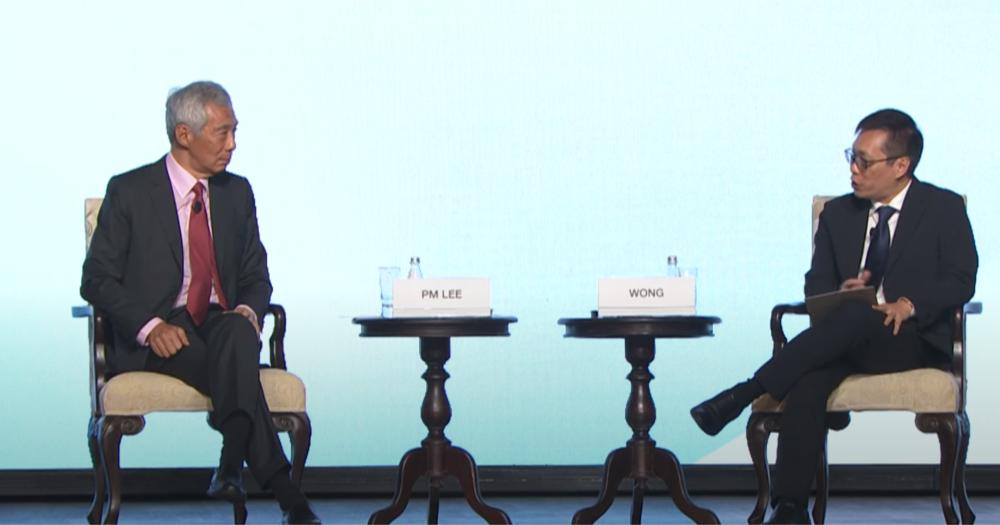On Oct 5, Prime Minister Lee Hsien Loong spoke at the Asia Future Summit, participating in a dialogue session where he answered questions on U.S.-China Relations, but also on Singapore's approach to foreign policy and misinformation.
The Institute of Policy Studies' Gillian Koh asked if Singaporeans properly understood the Singapore government's approach to foreign policy, as well as about attempts to influence Singaporean's understanding or sentiment, from sources explicit and upfront, as well as covert.
Domestic support for international positions
PM Lee replied by saying that Singapore is an open society, and Singaporeans are exposed to international events through international news, which he believed Singaporeans are more exposed to than nearly any other country's citizens.
Singaporeans also travel internationally extensively, seeing the world and expanding their exposure to international events.
Despite this, Singaporeans still have a limited bandwidth for foreign events, still having day-to-day concerns that they have to address.
Therefore, there is a need to ensure that they have a "general understanding" that the government is taking the "right foreign policy stance".
Without domestic support for a country's international stances, those positions will be unsustainable.
PM Lee used Singapore's support for Ukraine as an example, saying that Singaporeans have shown in straw polls a general understanding for the government's strong, principled stance, and understanding that sovereignty and the fundamental principles of the United Nations Charter were at stake.
"If we do not speak up on this clearly, regardless of who it is against whom, because of the principles, one day if it happens to us, nobody will speak up for us. So I think in their own ways, Singaporeans do understand what is what," PM Lee said.
POFMA as a verb
PM Lee also explained the role of the Protection from Online Falsehoods and Manipulation Act (POFMA) in combating misinformation.
Singaporeans are now exposed to a multitude of sources of information and disinformation, from social media and messaging apps.
These sources also come in different languages, PM Lee said, likely alluding to the non-Singaporean nature of some of the sources.
PM Lee said that to counter this misinformation and put out the correct message is a "ceaseless task".
He said that the government has to make sure that people have an understanding of where something they are reading is coming from, as well as how it is trying to influence their thinking.
He said: "We have a phrase called POFMA. It has become a verb, I can POFMA you."
How POFMA is used
POFMA is a way for Singapore to flag untruths, to dispute the factualness of a claim, and "that these are assertions which are strongly disputed and in the government’s view, false", PM Lee added.
Quoting former China leader Deng Xiaoping, PM Lee said that "when you open the windows", both the beneficial fresh air, but the detrimental "flies and mosquitos" enter the room.
It is not possible for Singapore build its own "great Firewall", the online control device that China uses to limit international content in China.
Singapore cannot keep out information and misinformation from the world at large, and thus would have to "deal with it".
Related Stories
Top image via Prime Minister's Office, Singapore/YouTube
If you like what you read, follow us on Facebook, Instagram, Twitter and Telegram to get the latest updates.



